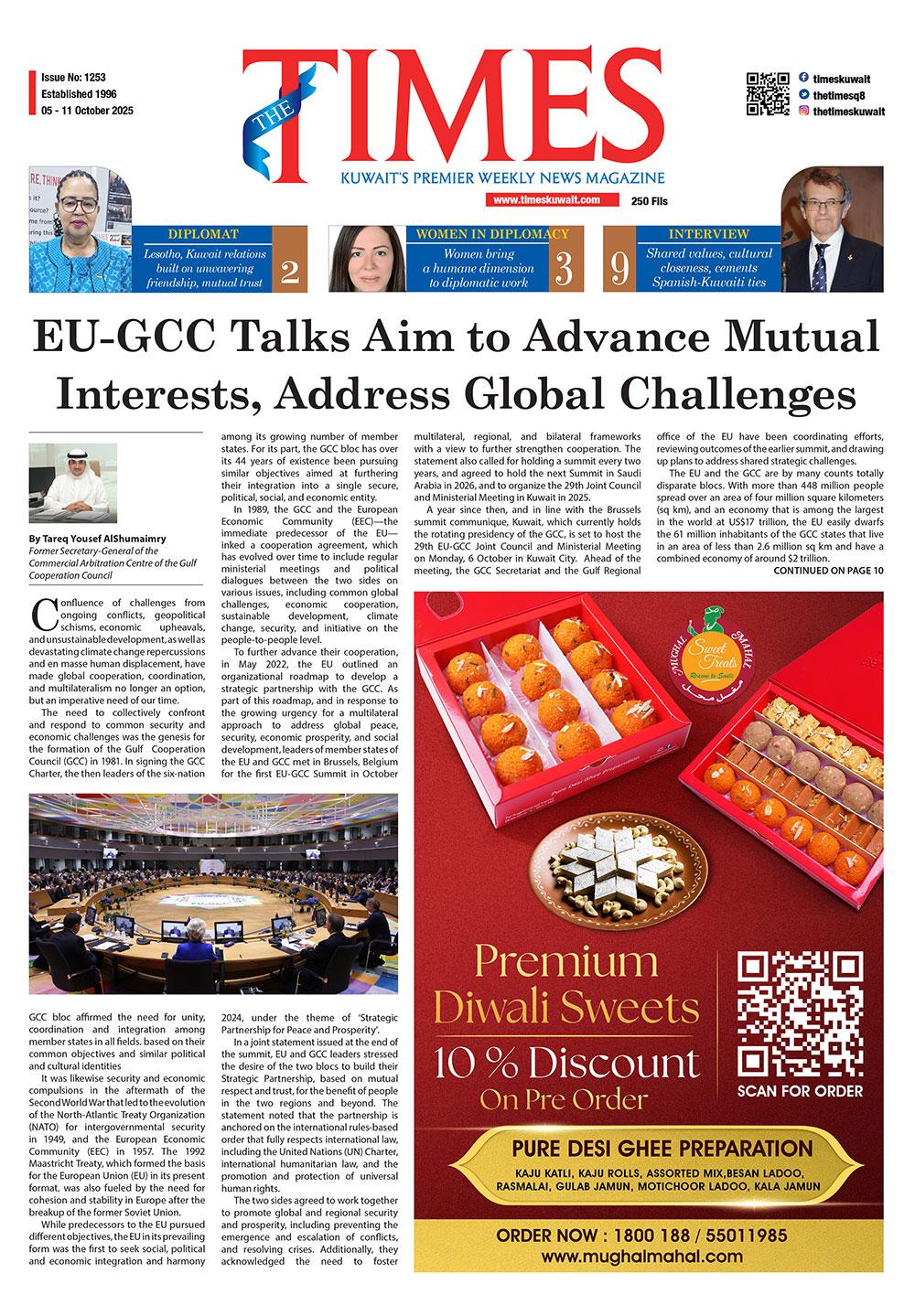By Tareq Yousef AlShumaimry
Former Secretary-General of the Commercial Arbitration Centre of the Gulf Cooperation Council
Confluence of challenges from ongoing conflicts, geopolitical schisms, economic upheavals, and unsustainable development, as well as devastating climate change repercussions and en masse human displacement, have made global cooperation, coordination, and multilateralism no longer an option, but an imperative need of our time.
The need to collectively confront and respond to common security and economic challenges was the genesis for the formation of the Gulf Cooperation Council (GCC) in 1981. In signing the GCC Charter, the then leaders of the six-nation GCC bloc affirmed the need for unity, coordination and integration among member states in all fields. based on their common objectives and similar political and cultural identities .
It was likewise security and economic compulsions in the aftermath of the Second World War that led to the evolution of the North-Atlantic Treaty Organization (NATO) for intergovernmental security in 1949, and the European Economic Community (EEC) in 1957. The 1992 Maastricht Treaty, which formed the basis for the European Union (EU) in its present format, was also fueled by the need for cohesion and stability in Europe after the breakup of the former Soviet Union.
While predecessors to the EU pursued different objectives, the EU in its prevailing form was the first to seek social, political and economic integration and harmony among its growing number of member states. For its part, the GCC bloc has over its 44 years of existence been pursuing similar objectives aimed at furthering their integration into a single secure, political, social, and economic entity.


